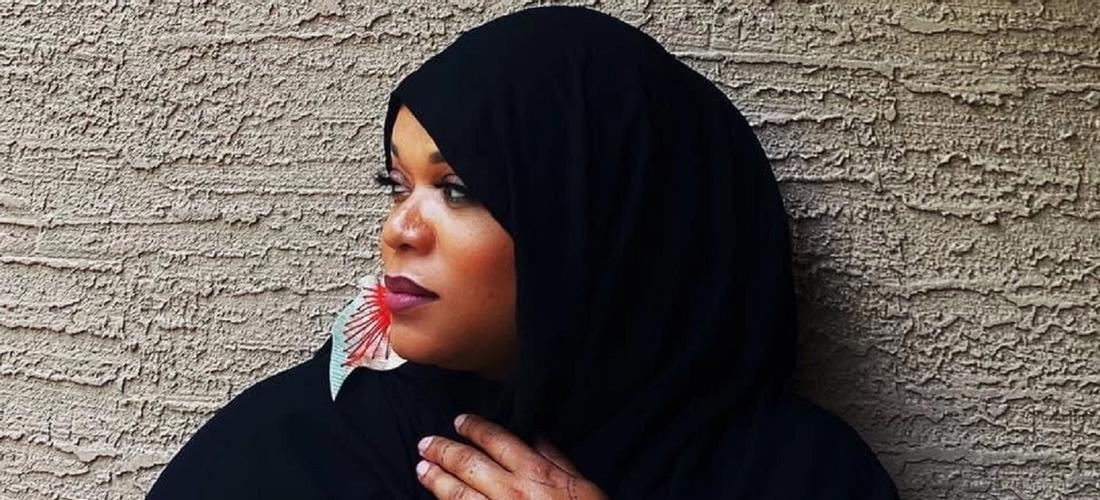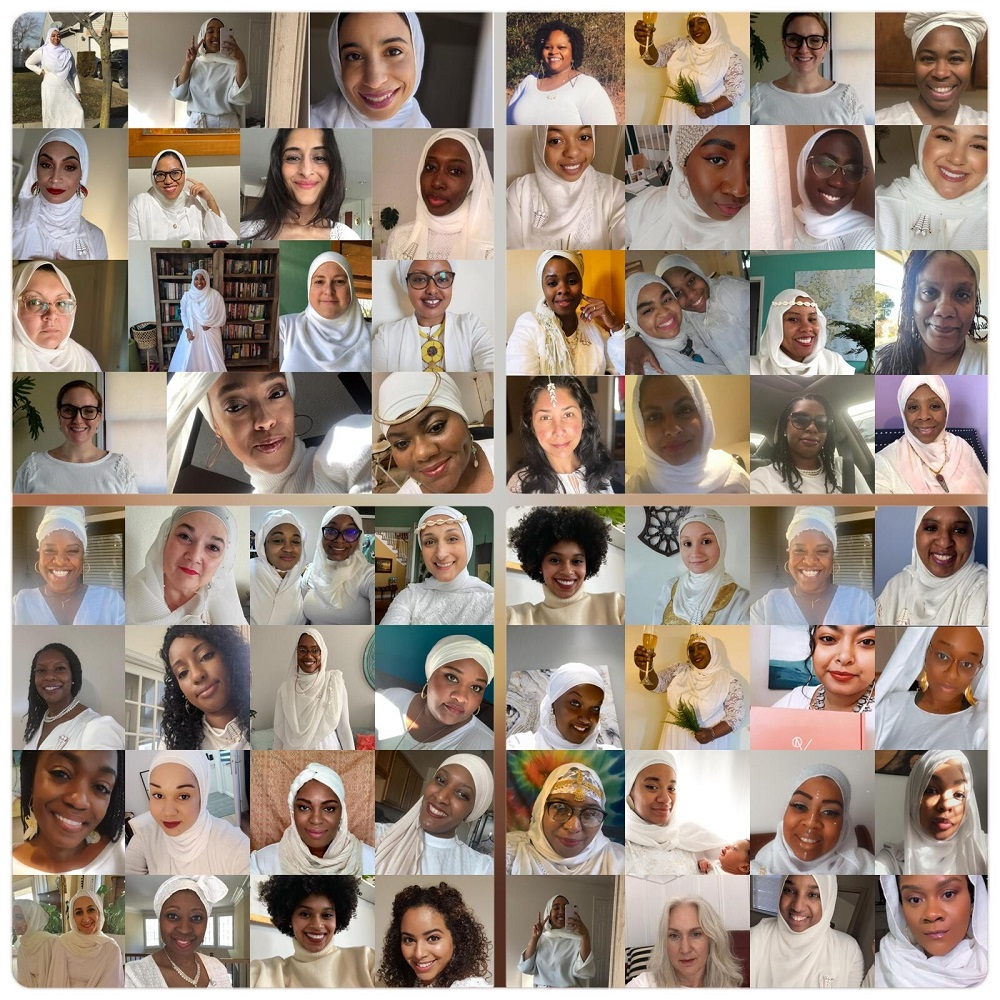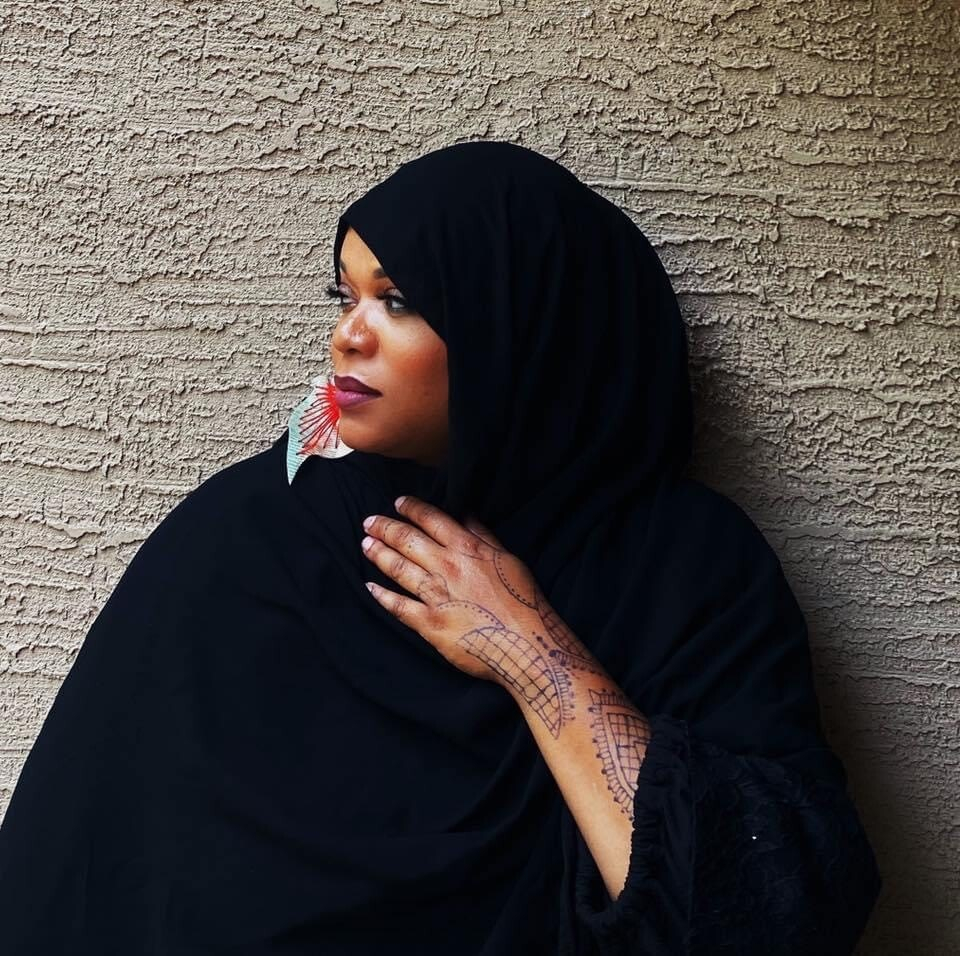Catching Up With the Village Auntie and Her Muslim (Halal) Sex Movement
Lifestyle
|
Feb 25, 2021
|
5 MIN READ

Angelica Lindsey-Ali, the Village Aunty
EDITORIAL NOTE: This post discusses intimacy and sex within the context of what is halal and Islamic. Please be advised if this is something you do not want to read (or do not want a loved one reading). We do not seek to offend anyone – but in the spirit of issues and movements in our Muslim communities, we felt it important to include this on the blog.
All right, we need to name this beautiful thing, No more denying that there is an incredible phenomenon growing in American Muslim culture and around the world encouraging adherence to the faith while also appreciating and enjoying the essential nature of love and intimacy in Islam.
Many Muslims forget that Islam, at its foundation, is more than a religion. The faith embraced by billions all over the world is a deen, a way of life, touching on every aspect of how we live and interact with each other, including when we are intimate. Allah (S) and His Messenger (saw) provide guidance about carnal desires so we can engage in sensual acts in ways that are halal and pleasurable.
Angelica-Lindsey Ali (aka The Village Auntie) remains an important leader in the Muslim sex movement. Angelica teaches sexual health workshops to Muslim women in an Islamic context and using African traditions. We first wrote about Angelica in 2019, when her Village Auntie movement was beginning to seriously grow. She carries her message about sexual health and gratification for women through social media, where she is a growing influencer.
Angelica recently expanded her educational platform by founding The Village Auntie (TVA) Institute in September 2020, to serve as a central space of learning about building and teaching about healthy sexual relationships.
Muslim Sex Tradition

The first Village Auntie cohort. Image source: Angelica Lindsey-Ali
Conversations about the links between faith, love and intimacy continue to grow in American Muslim culture, with many adherents to Islam seeking to reconnect and channel their passions in ways that will garner Allah’s (S) blessings and emotional and physical fulfillment for themselves and their partners. Experts like psychosexual therapist, Dr. Wafaa Eltantawy and Islamic erotologtist, Habeeb Akande provide literature and spaces to discuss the sexual dysfunctions in Muslim communities and methods to help couples find mutual gratification, which has a rich tradition in Islam called ‘ilm al-bah (The Art of Coition).
Habeeb describes ‘ilm al-bah as “the study of desire and sex” that includes a literary genre, wherein “a number of Muslim scholars, writers, poets [and] medical authors discussed wrote many books about [sex in] as early as the ninth century.” Habeeb explains that Islamic erotologists derived their sources from the Quran, ahadith and ancient erotology traditions among the Indians and Greeks. “From an Islamic perspective, we have a rich tradition of many Muslim scholars, both in the Sunni and Shia traditions, writing about sex, desire and sexual ethics,” says Habeeb.
Modern Muslim scholars, medical professionals and writers draw from the faith’s historical studies of faith and sensuality to produce cultural and educational information for Muslims to have more mutually-satisfying intimacy. Angelica has promoted women’s sensual health by offering private and institutional workshops that integrate Islamic and African traditions.
By establishing TVA institute, she has transitioned her work into an educational organizational framework that provides opportunities of individual growth and professional development in the field, combining sexuality and spirituality.
“The institute will house all of the workshops and classes that I do,” says Angelica, “and will ultimately offer certification and training course for Muslim women.”
Angelica recently launched the institute’s first cohort, Foundational Womanhood, which she described as a rite of passage program for women that is “interfaith, intercultural, intergenerational and international.
Why an Institute?

Angelica Lindsey-Ali
“The reason why I wanted to found The Village Auntie Institute [was] to reclaim the legacy of particularly Muslim women, but also women in general, in founding institutions. The first university in the world, the University of al-Qarawiyyin, was founded by Fatima Al-Fihri. I wanted to push against the narrative that we need some external entity to validate or qualify us and create an institute that [will] live outside of social media and provide women with real grounding and training.”
Ultimately, Angelica plans for the TVA institute to offer a range of women-only classes and certification courses for women to acquire the necessary to engage in a variety of work that promotes sexual and sensual health.
Angelica explains that she does the majority of the classes but plans to expand courses to include other instructors across a breadth of disciplines.
“I have started bringing in guest instructors. I would like to have a range of classes. We can have classes on fiqh [or] a Quran class. I would love to see classes on entrepreneurship, money management, how to build a portfolio, dance classes, and classes on West African cooking. Workshops and classes that are beneficial but not limited to Islam are something a lot of people want.
“I do have a goal of branching outside of the Muslim community because there so many non-Muslim women who want to take the classes but do not know if it is for them. I want the institute to be a space where women can feel included, regardless of their faith.”
Angelica will continue her private workshops but sees The Village Auntie Institute as a way to structure her work beyond her individually. “I want to operationalize the work,” she says, “so it can have a level of respect, and so that it can outlive me.”
Angelica projects that The Village Auntie Institute will offer certification courses in the Fall of 2021.
Every Woman Should Be Their Own Auntie
The potential learning opportunities at The Village Auntie Institute will provide women of all backgrounds with the chance to enter discourses about female sensual and sexual health. Due to the specific conveyance of expertise, TVA certification courses will be smaller than the institute’s general workshops.
Angelica points out that the purpose of the TVA Institute is for women to become agents in discussions and training, not to become Village Auntie clones. “I want to be very clear that I can’t train someone through The Village Auntie Institute to be me. Everything I do with The Village Auntie platform is a culmination of my life’s work. I am not trying to produce people who do the exact same thing as me. It’s about finding a touchpoint that resonates with you, having the means to learn more about it and ways to gain knowledge and certification so that you can take that information and use it as how you see fit.
“It’s about helping each woman be the best version of herself, not a clone of someone else.”
Angelica is a vanguard in the Muslim sex movement. Like many Black women, she created a platform for conversations about sensual pleasure. She forged ahead despite the derision and negative responses she received, continuing to help women learn to tap into their inner selves, carnal desires and layers of womanhood. She serves as a standard-bearer, allowing and encouraging those waiting on the sidelines to enter the conversations.
Subscribe to be the first to know about new product releases, styling ideas and more.
What products are you interested in?

